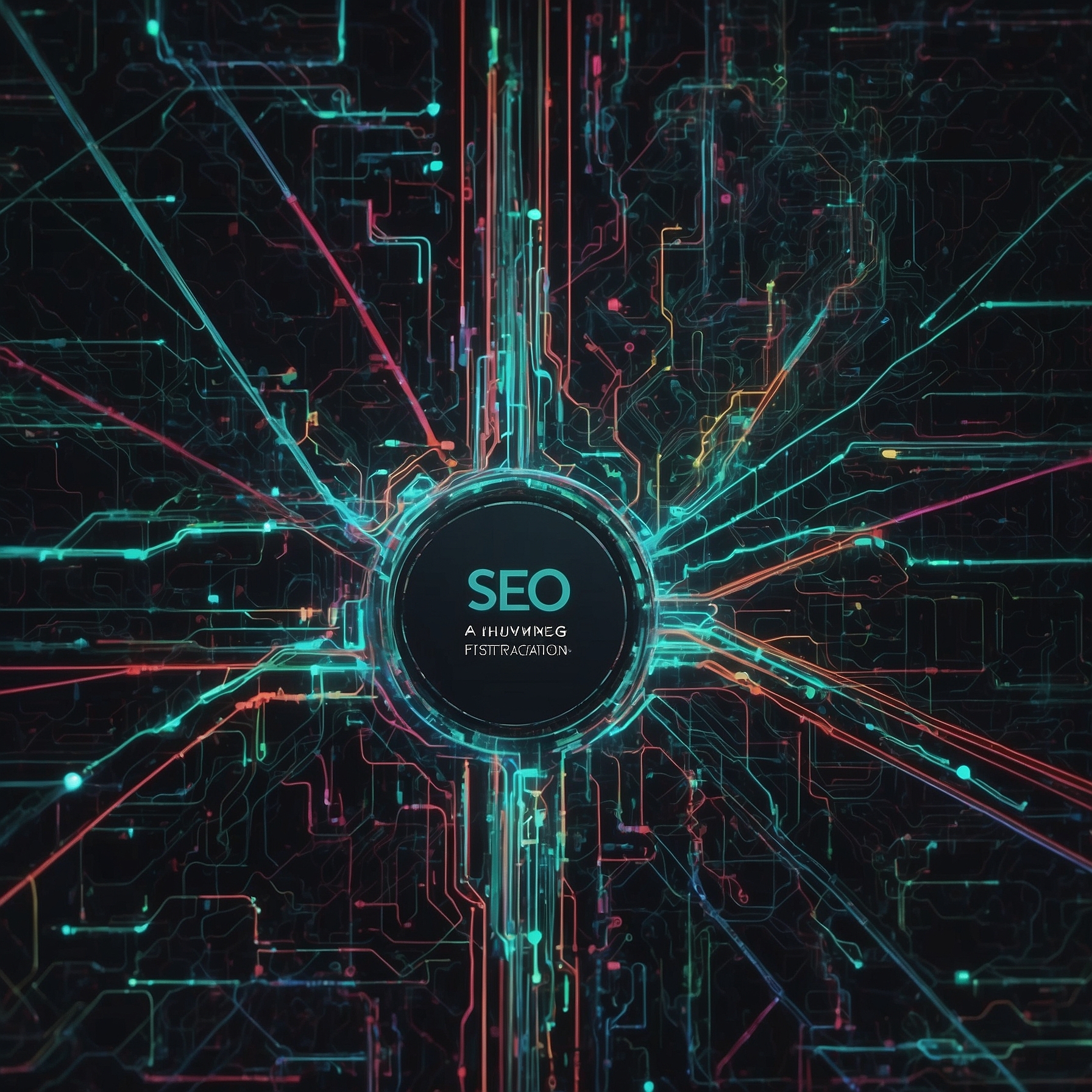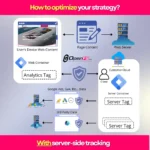The SEO landscape has transformed dramatically in recent years, and if you’re thinking about diving into search engine optimization in 2025, I’ve got some hard truths to share. After spending over a decade in digital marketing, I can tell you that the traditional approach to learning SEO is essentially obsolete. The game has changed, and those clinging to outdated strategies are getting left behind.
The Death of Traditional SEO Strategies
Remember when SEO was all about keyword stuffing, building backlinks, and cranking out content? Those days are gone. The old playbook that worked five years ago is now a recipe for disaster. Traditional keyword research tools still have their place, but they’re no longer the foundation of a successful strategy.
What used to work was simple: find keywords with decent search volume and low competition, create content around them, build some backlinks, and watch your rankings climb. However, this approach has become increasingly ineffective as search engines have evolved. Google’s algorithms now prioritize user experience, content quality, and genuine value over technical optimization tricks.
Why Old-School SEO Tactics Fail in 2025
The primary reason these strategies no longer work is that everyone’s doing them. When millions of websites follow the same playbook, the internet becomes saturated with similar content. Additionally, Google has become incredibly sophisticated at detecting and penalizing manipulative tactics. Sites that relied heavily on these outdated methods have seen their traffic plummet or disappear entirely.
How AI Has Revolutionized Search Engine Optimization
The explosion of AI-generated content has fundamentally altered the SEO landscape. We’re witnessing an unprecedented flood of AI-written articles, and Google’s response has been swift and brutal. Entire websites have vanished from search results overnight, particularly those relying heavily on mass-produced AI content without human oversight or value addition.
This shift has created both challenges and opportunities. While AI-powered SEO strategies can enhance your efforts, they must be implemented thoughtfully. The key is understanding that AI should augment human creativity and expertise, not replace it entirely.
Google’s Evolving Response to AI Content
Google has implemented sophisticated detection systems to identify and devalue low-quality AI content. They’re looking for patterns, repetitive structures, and lack of genuine insight. However, they’re not against AI usage per se – they’re against content that doesn’t serve users effectively. This distinction is crucial for modern SEO practitioners to understand.
SEO in 2025: Evolution, Not Extinction
Despite what some doomsayers claim, SEO isn’t dead – it’s evolving. The fundamental principle remains unchanged: helping people find valuable information online. What’s changed is how we achieve this goal. Modern SEO strategy in 2025 requires a more holistic approach that goes beyond traditional optimization tactics.
Today’s SEO is about building genuine authority, creating exceptional user experiences, and understanding search intent at a deeper level. It’s less about gaming the system and more about providing real value that naturally attracts both users and search engines.
Modern SEO Learning: Skills That Actually Matter
If I were starting my SEO journey today, I’d focus on entirely different skills than what traditional courses teach. Here’s what actually matters in 2025:
- User Experience Design: Understanding how people interact with websites and content
- Data Analysis: Interpreting complex metrics beyond basic rankings
- Content Strategy: Creating comprehensive content ecosystems, not just individual pages
- Technical Performance: Ensuring lightning-fast load times and seamless mobile experiences
- Brand Building: Establishing genuine authority and trust signals
Essential Technical Skills for Modern SEO
While traditional technical SEO remains important, the focus has shifted. Core Web Vitals, mobile-first indexing, and JavaScript rendering are now critical components. Additionally, understanding structured data implementation has become essential for competing in today’s search landscape.
Leveraging AI Tools Without Falling Into Traps
AI tools can be incredibly powerful when used correctly. The mistake many make is treating AI as a content factory rather than a collaborative partner. Smart marketers use AI SEO tools for research, ideation, and initial drafts, then add their unique insights, experiences, and expertise.
Here’s how to use AI effectively in your SEO workflow:
- Research Enhancement: Use AI to analyze competitor content and identify gaps
- Content Outlining: Let AI help structure your ideas, but write with your own voice
- Data Analysis: Leverage AI for pattern recognition in large datasets
- Optimization Suggestions: Use AI tools to identify optimization opportunities, but apply them thoughtfully
Common AI Pitfalls to Avoid
The biggest mistake I see is over-reliance on AI-generated content without human oversight. This leads to generic, soulless content that neither users nor search engines value. Another critical error is using AI to create content at scale without considering quality or relevance. Remember, one exceptional piece of content outperforms hundreds of mediocre ones.
Why Google Still Dominates Digital Marketing Strategy
Despite the rise of alternative platforms, Google remains the 800-pound gorilla in the room. They process over 8.5 billion searches daily, and their influence extends far beyond traditional search. Understanding Google SEO is still crucial, but it’s now part of a broader digital ecosystem.
Google’s role has evolved from being just a search engine to becoming a comprehensive digital experience platform. With features like AI Overviews, rich snippets, and knowledge panels, ranking #1 doesn’t guarantee the clicks it once did. This reality requires a more sophisticated approach to visibility and engagement.
Building a Future-Proof SEO Foundation
Creating an SEO strategy that withstands algorithm changes requires focusing on timeless principles rather than temporary tactics. Start by building a strong brand presence across multiple channels. Your website should be fast, secure, and provide an exceptional user experience on all devices.
Content quality remains paramount, but it’s no longer just about word count or keyword density. Modern content must demonstrate E-E-A-T (Experience, Expertise, Authoritativeness, and Trustworthiness). This means showcasing real expertise, citing credible sources, and building genuine authority in your niche.
Developing an Adaptive SEO Mindset
The most successful SEO practitioners in 2025 are those who embrace change rather than resist it. This means constantly learning, experimenting with new strategies, and being willing to abandon tactics that no longer work. Focus on understanding why certain strategies succeed rather than blindly following best practices.
Practical Steps for SEO Success in 2025
If you’re serious about mastering modern SEO, here’s your roadmap:
- Start with User Intent: Before creating any content, deeply understand what your audience actually needs
- Build Topic Clusters: Create comprehensive content hubs rather than isolated pages
- Prioritize Page Experience: Focus on conversion rate optimization alongside traditional SEO
- Diversify Traffic Sources: Don’t rely solely on organic search – build email lists, social presence, and direct traffic
- Measure What Matters: Track conversions and engagement, not just rankings
The Integration of SEO With Broader Marketing Efforts
Modern SEO doesn’t exist in a vacuum. It’s deeply integrated with search engine marketing (SEM), social media, email marketing, and other digital channels. The most successful strategies leverage SEO as part of a comprehensive digital marketing approach.
This integration means understanding how different channels support each other. For instance, strong SEO can reduce your paid advertising costs, while PPC data can inform your organic keyword strategy. Similarly, social signals and brand mentions contribute to your overall authority and search visibility.
Conclusion: Embracing the New SEO Reality
The SEO landscape of 2025 is radically different from what it was just a few years ago. While this might seem daunting, it’s actually an opportunity for those willing to adapt. The barrier to entry is higher, but the rewards for those who master modern SEO are greater than ever.
Success in today’s SEO environment requires a combination of technical expertise, creative thinking, and genuine value creation. It’s about building sustainable strategies that serve users first and search engines second. If you’re ready to embrace this new reality and develop skills that actually matter, the future of SEO is bright.
Remember, SEO isn’t just about rankings anymore – it’s about building a lasting digital presence that drives real business results. Focus on creating exceptional experiences, providing genuine value, and staying adaptable in the face of constant change. That’s how you win at SEO in 2025 and beyond.
Frequently Asked Questions
Is it still worth learning SEO in 2025 given all the AI changes?
Absolutely, but you need to learn modern SEO practices, not outdated tactics. Focus on user experience, quality content creation, and understanding search intent rather than traditional keyword stuffing and link building. The fundamentals of helping people find valuable information online remain crucial, even as the methods evolve.
How long does it take to see results from SEO efforts today?
SEO timelines have actually extended compared to previous years. While you might see some movement in 3-6 months, significant results typically take 6-12 months or longer. This depends heavily on your competition, industry, and the quality of your implementation. Building genuine authority takes time, but the results are more sustainable than quick-win tactics.
Can I use AI tools for content creation without getting penalized by Google?
Yes, but AI should enhance your content creation process, not replace it entirely. Use AI for research, ideation, and first drafts, then add your unique insights, experiences, and expertise. Google doesn’t penalize AI use itself – they penalize low-quality, unhelpful content regardless of how it’s created.
What’s the most important SEO factor to focus on in 2025?
User experience and search intent satisfaction are paramount. While technical optimization remains important, Google’s algorithms increasingly favor sites that genuinely help users accomplish their goals. This means fast-loading pages, intuitive navigation, comprehensive content, and clear value propositions matter more than ever.
 Written by: Romulo Vargas Betancourt
Written by: Romulo Vargas Betancourt
CEO – OpenFS LLC







